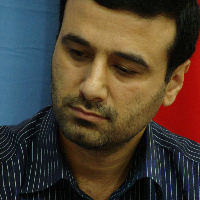Fundamentalism in Critique or Fundamentalist Criticism
Different perspectives on literary criticism have not been in the right place because of lack of approach. Eventually, these perspectives have been classified with other collections. The idea of fundamentalism came from religious movement of Protestantism. It formed different theories such as reader based critique, the subjective reader criticism, sociological literary criticism, and feminist criticism. In Iran, fundamentalism exists effectively and relies on the value of the literary work. In this cross-sectional study we want to view and critique fundamentalism in Europe. We discuss the perspectives of Arnold and Elliot in Europe and Ahmad Kasravi, Ehsan Tabari and Fatemhe Sayyah in Iran. The results of this study indicate that critical fundamentalism is a form of criticism. The methods of this critique are collapse or debunk of literary texts so that we can change them into political or religious ideological contents. This method can be shown in different genres.
The first words about fundamentalism have emerged in the field of religious thought. The term became popular among the religious tradition of the Church and the Protestant faith. Religious scholars have taken note of the new interpretations of the Bible's originality and the obvious truth of the Bible. Protestant fundamentalists adhered to specific theological foundations by faith in God and the eternity and the infallibility of the Bible text. Protestant fundamentalists adhered to specific theological foundations by faith in God and the eternity and the infallibility of the Bible text and they demanded a careful distinction of the prosperous from the non-prosperous and the chosen from non-chosen (Heywood, 2001). In the field of art, the teachings of church, with a value-and-originality approach to the perception of beauty, have been prevalent for centuries as the prevailing tradition in Western art and literature. In the same period, understanding beauty has been a difficult issue. Some in the category of deterministic system sought to lay the groundwork for overcoming the common beliefs of the church. The emphasis on binding through literary work and reading on the basis of the critiques provided is a long-running debate that continues to this day. Therefore, such a reading of literary works can be thought of as having a Greek origin, and in particular, Plato's view, that is influenced by understanding the literary work based on the valuable principles of the faithful or a particular approach. But have these relationships as a comprehensive or thought-provoking method in the field of literary criticism been able to explain the question of value and adherence to particular professional principles? How serious is the widespread presence of such a method in the field of literary criticism that emphasizes on moral, social, religious, political foundations? Will the discussion of a fundamental values critique be the study of different cultural systems for the development of particular network components?
In the present study the background of fundamentalism as a quasi-moralist approach has been studied in a descriptive-analytic way. This approach seeks to subvert or reduce the literary text to the ideological, religious, or political content that is critical to understanding literary value. In the second part of the paper, the reflection of fundamentalism in Iran is examined by excerpts from the works of three Iranian critics. The purpose of this study is to give a brief look at one of the literary criticisms that lacks classification and terminology and to examine the literary critics' approach to the fundamentalist approach and its system of construction in the West and to discover its reduced or expanded area in Iran. The assumption of this study is that the fundamentalist critique of art and literary work is in the instrumental position and it becomes an ideological use, in a way that, through direct reading, the intellectual world and even the social class of the artist (writer, poet) serves the meanings and values that the critic seeks in his interpretation.
He identified a purposeful critique during critiques of the accepted framework and coherent theory, the default of which is to construct rules and critique discourse and monopoly. In such circumstances, the critic sometimes seeks it out in all texts, regardless of the conditions of discourse formation resulting from the objective and subjective experiences of particular societies. Placing a coherent framework for criticism that includes fundamentalist aspects as with many definitions, creates methodological deficiencies. Fundamentalist criticism empowers the author to facilitate reading in order to read the text. This assumed continuity helps the reader overcome the nature and flow of the author's dominant voice over the world of text and transcend it credibly.
Fundamentalism in literary criticism, like some theories and discourses that have directly examined literature, has not treated literary works as a subject. This approach first appeared in the field of religion and then in the field of politics. Paying attention to the evaluation of literary work and its ideological infrastructures is one of the features that has been evident even in the study of literary works. In critique of ideology-based criticism, it seeks to explore the cultural fabrication of the existing capacities of the text, so the critic's concern goes beyond structure and language and into the concrete and discursive relationships of particular groups of people, religion, or ideology that shape the structure of power. Critics' attention to the discovery of power infrastructures goes beyond contemporary texts and to the discovery of power networks in ancient works. This method was also considered in radical styles. Although radical stylistics is about language, it reflects specific ideologies in language, so that radical stylists are interested in examining the reflection of ideological tendencies in language.
- حق عضویت دریافتی صرف حمایت از نشریات عضو و نگهداری، تکمیل و توسعه مگیران میشود.
- پرداخت حق اشتراک و دانلود مقالات اجازه بازنشر آن در سایر رسانههای چاپی و دیجیتال را به کاربر نمیدهد.


